After alot of blood sweat and tears, I finally have this working. For some reason, I cant find some of what is below anywhere in any google search combo that I use. Oh well. So I am going off a new Ubuntu 10.10 server install with no extra packages installed and assuming that you have done your apt-get update, apt-get upgrade and properly secured your environment. Also, a properly configured iSCSI environment (such as a seperate iSCSI network, proper stacked iSCSI switches, configured ports and such), if you don’t, please HAMMER DON’T HURT’EM!
My setup that we are working off of is an Ubuntu 10.10 x86_64 Server install with the default packages upgraded using apt. We will be attaching to a Nexsan SATABeast (GO NEXSAN!) with 4 iSCSI ports in the All Ports All Luns port config.
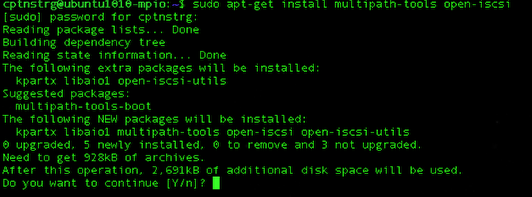
We need to install the multipath tools as well as the iscsi initiator and tools.
I am assuming that you want all of these disks scanned an set up each time you boot. If not, find your answers elsewhere. ;P
We need to modify the following values in the iscsid.conf file, the should be as follows:
node.startup = automatic
Make sure you comment out the line with node.startup = manual.
I also add the line so I dont have to add it into each command.:
node.conn[0].startup = automatic
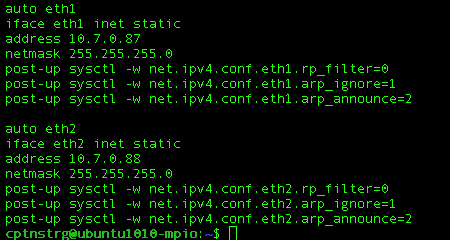
Your two interfaces will look different from an IP perspective, but the last three lines are needed for each interface.
You need to comment out two lines of this file… see what it should look like:
#net.ipv4.conf.default.rp_filter=1
#net.ipv4.conf.all.rp_filter=1
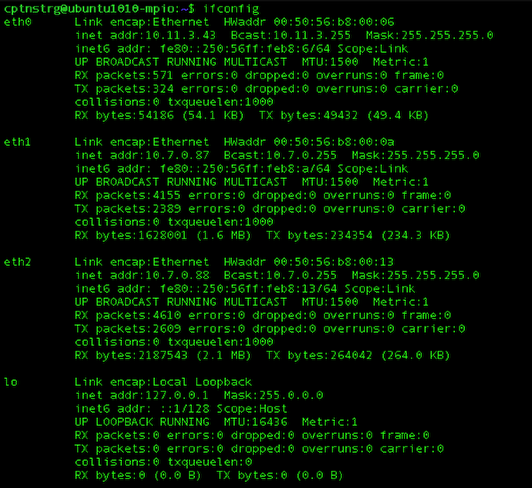
Now we need to gather our MAC addresses so we can create our iSCSI interfaces. In the above, eth0 is my main networking interface and eth1 and eth2 are my ports on the iSCSI network.

With our MAC addys handy, we create the iSCSI ifaces and associate them to their respective MACs. Pretty straignt forward.

Commands to discover on each iSCSI port of the Nexsan SATABeast

lets log into all of the targets and set them to automatic.

making sure all looks good.

It was nice of them to not include the multipath.conf file.
Lets modify that file now.
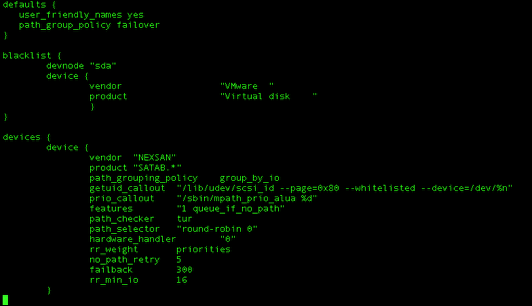
Here is what your /etc/multipath.conf file should look like… EXCEPT for your blacklist. Please blacklist the disks that are not multipathed… such as floppies, cdroms and local scsi disks.
I found a problem in the /etc/init.d/open-iscsi file where it is looking for a file called default that isn’t there.
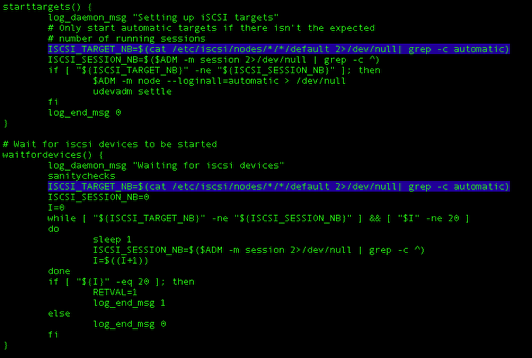
Replace the word default in the highlighted lines above with an astrisk.
Reboot that sucka!
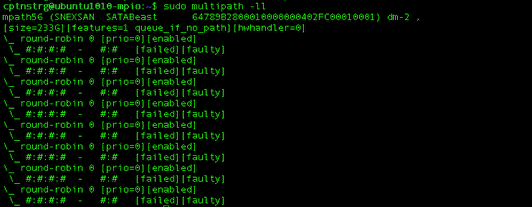
and BOOM! Now you can format, add to your fstab and have fun. YAY TACO!